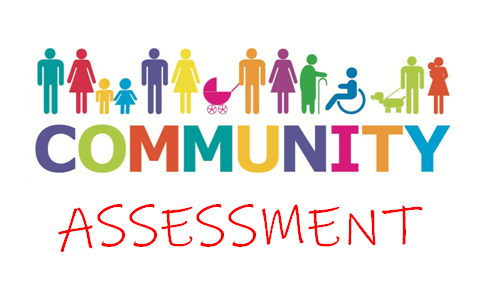
Investing in a community assessment is not only a requirement for all Global Grants, it is the foundation for developing quality projects that have positive impact, are sustainable and are embraced by the community we intend to help. A very helpful resource, Doing Good, Says Who? stories from volunteers, Non-profits, donors and those they want to help, by Connie Newton and Fran Early use real tales from the field to illustrate the positive and the, often, unintended consequences of good intentions. Their approach is common sense and based on really listening to the people we hope to support.
These five principles for Doing Good...Better! include:
- Respect and Value the People. The best outcomes for the work of organizations are related to how they view the “beneficiaries” of their programs. Organizations that value and respect people describe their beneficiaries as people with agency, assets and priorities. Organizations that view beneficiaries as objects describe people based on what they lack. They focus on problems and needs. Recognizing that the “beneficiaries” have their own intrinsic value and strength holds the key to positive outcomes. Beneficiaries with their own unique human gifts are protagonists and partners with resources, who have their own ideas and priorities. How do you view the beneficiaries of its programs?
- Build Trust through Relationship. There is an old saying that work moves at the speed of trust. And trust is built through creating mutually respectful relationships. When trust is built with respected and valued partners each has something to contribute to the construction of a mutually desired outcome. It means being present to one another and a lot of listening. Trust is behavior over time. It is intentional and takes months. The interaction yields the experience, recognition, and appreciation of one another’s value that constitutes trust. Trust becomes the foundation of open communication, the elasticity of give and take, and a welcoming attitude toward differences or conflicts as something normal to work through and learn from with one another on a mutual journey. Organizations that prioritize trust through relationships:
- make safe spaces and regular time to listen to one another
- value differing ideas
- make plans collaboratively
- Do WITH rather than FOR. Organizations working WITH people as peers, respect and appreciate the contribution of each party’s perspective and priorities, strengths and resources for creating change. Organizations working FOR people are most needed in situations of imminent peril or catastrophic events. Organizations doing FOR people living in poverty often perpetuate the status quo by giving handouts to those they see as lacking in resources and as objects of need. Doing WITH is a relationship between subjects, which fosters cooperation between contributing partners to bring a mutually desired change for good. Common practices include:
- working together to define the outcomes of desired change
- asset mapping
- collaborative strategic planning and decision making
- transparency in all financial work from budgets to fundraising
- Ensure Feedback and Accountability. Regularly scheduled feedback is part of the process between trusted partners. In order to get the outcome partners have identified, there are usually lots of steps along the way. Those steps are taken by specific people or groups who are accountable for implementing them. When feedback and accountability are expected any problem that arises can be openly discussed, corrected, or altered. If the feedback and accountability are absent, trust is broken. Communication is no longer transparent nor constructive in reaching the agreed outcome. Some common practices are:
- Regular reports on actions taken
- Clear and consistent communication with internal and external stakeholders
- Measurements for program progress
- Gathering predetermined impact data
- Reviewing well-defined financial data for staying on budget.
- Evaluate Every Step of the Way. Principles 4 and 5 are really sisters. If feedback doesn’t get evaluated, the agreed upon outcomes may go off track and never be reached. Evaluation is constantly needed. Establishing mutual evaluation criteria is the basis for keeping the partnership on track. Examples include:
- Employees have work plans with check in points
- There are systems to regularly answer the questions: Is this working and how can we make it better – such as After Action Reviews, Regular review and discussion of performance metrics
Doing Good, Says Who? is required reading for many service organization volunteers as it is a practical, thought provoking resource for anyone intending to get involved in service. Highly recommended to all Rotarians, whether beginning their first project or with great experience, as a must-read to help inform how to get involved with a community so that we are working with people rather than doing for them.
Check out Rotary.org for more on community assessment resources.